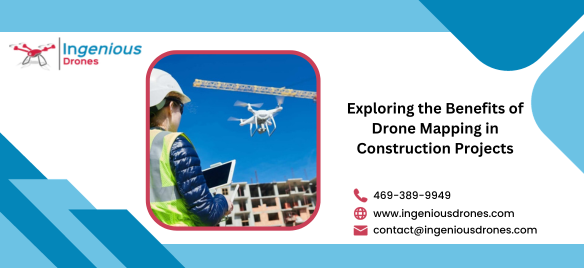Drones, once seen primarily as recreational gadgets, have now carved out a significant niche in various industries, including construction. The use of drones in construction projects has grown exponentially in recent years, thanks to their ability to provide valuable data through mapping and surveying. In this blog, we’ll delve into the benefits of drone mapping in construction projects and how it’s changing the way we build.
A New Perspective on Construction
Traditionally, construction sites relied on ground-based surveying methods, which were time consuming and often involved a certain degree of inaccuracy. Drone mapping, on the other hand, offers a fresh perspective from the skies. Here’s how it’s revolutionizing the construction industry:
1. Enhanced Site Planning
One of the primary benefits of drone mapping is its ability to create high-resolution aerial images and 3D models of construction sites. This data is invaluable for architects, engineers, and project managers, as it provides a comprehensive overview of the site, helping with accurate site planning and design.
2. Accurate Measurements
Drone mapping software can provide precise measurements of distances, areas, and volumes. This accuracy is crucial for calculating materials needed for a project, reducing waste, and minimizing cost overruns.
3. Safety Enhancement
Drones can access hard-to-reach or potentially hazardous areas without endangering human lives. They can inspect structures, check safety compliance, and identify potential safety hazards.
4. Cost Efficiency
By streamlining the construction process, drone mapping helps reduce operational costs and optimize resource allocation. Fewer rework instances, accurate measurements, and efficient project monitoring all contribute to cost savings.
Conclusion
Drone mapping has become an indispensable tool in the construction industry. Its ability to provide accurate data, enhance safety, and streamline operations is transforming how construction projects are planned and executed. As drones continue to improve and become more accessible, their role in construction is only set to expand. Embracing this technology can lead to more efficient, cost-effective, and sustainable construction practices. It’s safe to say that the sky’s the limit for the future of construction with drones.


Recent Comments